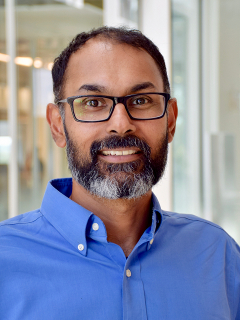CS/CIS Event: When Electronic Privacy Gets Physical: Privacy in the Age of Pervasive Photography
The presentation is sponsored by:
IEEE Rochester Section: Computer and Computational Intelligence Societies Joint Chapter
and RIT's Center for CyberSecurity
and is part of the Great Lake Security Day 2018 at RIT.
See: https://www.rit.edu/cybersecurity/great-lakes-security-day-2018
Abstract:
As always-on and wearable cameras -- and digital photography in general -- become more common place, we will need to reconsider our notions of privacy. How will people react to constant surveillance by their peers ("sousveillance") and what technical solutions can enhance privacy in this new age? I will highlight some of our interdisciplinary research on answering and addressing these questions in the context of wearable cameras. I will also talk about how cameras can enhance privacy, e.g., by aiding populations with visual impairments with a visual assessment of their surroundings.
Date and Time
Location
Hosts
Registration
-
 Add Event to Calendar
Add Event to Calendar
- RIT
- 152 Lomb Memorial Dr.
- Rochester, New York
- United States 14623
- Building: Golisano Hall (GOL) -- Building 70
- Room Number: 1400 - Auditorium
- Click here for Map
- Contact Event Host
- Co-sponsored by RIT's Center for Cybersecurity
Speakers
 Apu Kapadia of Indiana University
Apu Kapadia of Indiana University
Biography:
Apu Kapadia is an Associate Professor of Computer Science at the School of Informatics, Computing, and Engineering, Indiana University Bloomington. Before joining Indiana University, he received his Ph.D. in Computer Science from the University of Illinois at Urbana-Champaign (UIUC), was later a Post-Doctoral Research Fellow at Dartmouth College, and then a Member of Technical Staff at MIT Lincoln Laboratory.
Apu Kapadia is interested in topics related to computer security and privacy. He is particularly interested in accountable anonymity; pervasive, mobile, and wearable computing; and human factors. For his work on accountable anonymity, two of his papers were named as 'Runners-up for PET Award 2009: Outstanding Research in Privacy Enhancing Technologies'. He has received eight NSF grants, including an NSF CAREER award in 2013, and a Google Research Award in 2014. He was also a recipient of the Indiana University Trustees Teaching Award in 2013 and a Distinguished Alumni Educator Award from the Department of Computer Science at the University of Illinois at Urbana-Champaign in 2015. For the years 2015 and 2016, he was Program Co-Chair of the Privacy Enhancing Technologies Symposium (PETS) and Co-Editor-in-Chief of the associated journal Proceedings on Privacy Enhancing Technologies (PoPETs).

